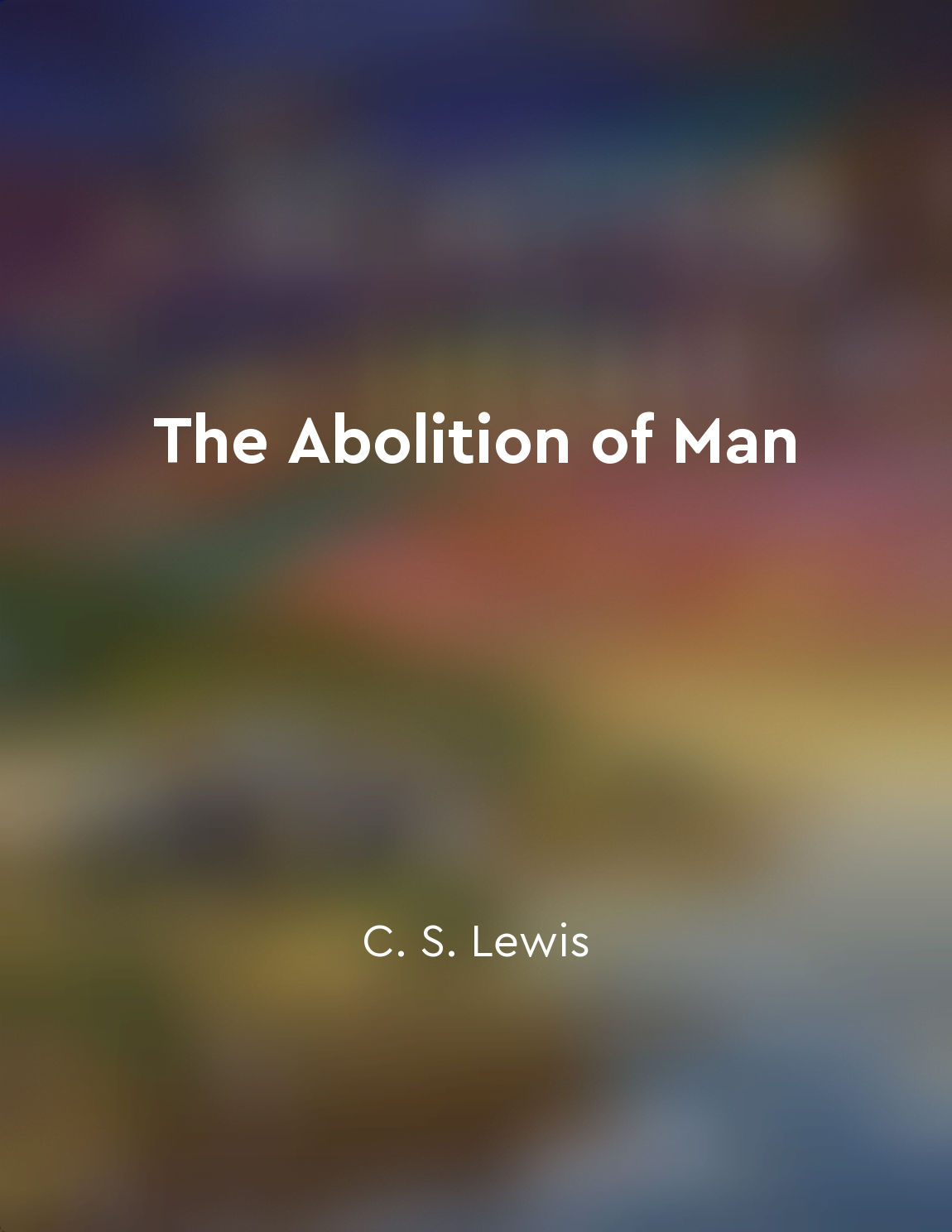The consequences of rejecting objective truth from "summary" of The Abolition of Man by C. S. Lewis
When we reject objective truth, we are cutting ourselves off from the very foundation of morality and ethics. Without a standard of truth to guide us, we are left adrift in a sea of relativism, where anything goes and nothing is certain. This rejection of objective truth leads to a dangerous form of subjectivism, where individuals are free to define their own reality and morality. As Lewis argues, this rejection of objective truth ultimately leads to the abolition of man himself. By denying the existence of objective truth, we are denying the very essence of what it means to be human. We are denying the fundamental truths that have guided humanity for centuries, and replacing them with a hollow shell of moral relativism. Without objective truth, we are left without a compass to guide us through the complexities of life. We are left vulnerable to the whims of our own emotions and desires, without any anchor to ground us in reality. This rejection of truth leads to a loss of moral discernment, where right and wrong become mere matters of personal opinion. In rejecting objective truth, we are also rejecting the very notion of universal values and principles that have united humanity throughout history. We are denying the existence of a common standard by which to judge our actions and decisions. Without this shared understanding of truth, we are left with a fractured and fragmented society, where each individual is left to create their own truth.- The consequences of rejecting objective truth are dire indeed. We are left adrift in a world without meaning or purpose, where moral relativism reigns supreme. We are left without a moral compass to guide us through the complexities of life, and without a shared understanding of truth to unite us as a society. Ultimately, the rejection of objective truth leads to the abolition of man himself, leaving us lost and alone in a world devoid of meaning or purpose.


